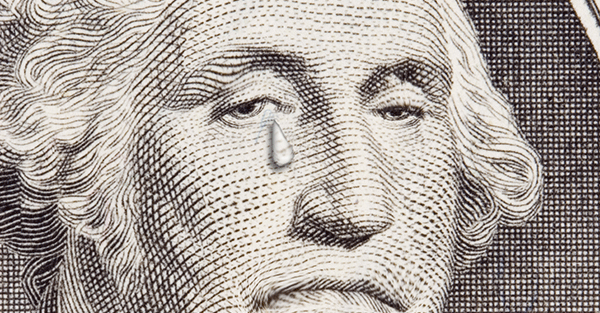In 49 BC, a defiant Julius Caesar stood in front of his army at the River Rubicon and made the biggest decision of his life.
It was strictly forbidden by Roman law for a general lead his army out of its province and into Rome. And the Rubicon marked the boundary.
“Alea iacta est!” (The die is cast!) he said, and led his army across the river into civil war.
The phrase “crossing the Rubicon” has stuck for more than 2,000 years, signifying a risky and dangerous point of no return.
This week, the United States government crossed the Rubicon.
In a fit of complete arrogance, a federal judge ruled that he has ‘jurisdiction’ over one of the biggest banks in mainland China, Bank of China (BOC), and demands that the bank turn over financial records to his court.
The judge is hearing a case brought by the luxury brand Gucci against an alleged Chinese counterfeiting ring for selling fake handbags in the United States.
The claim is that the Chinese defendants are sending their ill-gotten gains back to Bank of China in the mainland. And the judge wants to see their account activity.
Bank of China, as you can probably guess, is predominantly owned by the Chinese government.
So it goes without saying that this demand (not a request) is a direct affront at China’s sovereignty.
The only leverage the judge has is that Bank of China has a branch in New York City; it is officially a licensed bank in the US.
So if Bank of China doesn’t comply, the judge could theoretically order that their US license be revoked.
Once again, the United States is using its financial system as a weapon.
Since US dollars are the most widely used reserve currency in the world, every bank on the planet needs some access to the US banking system.
Whether you’re in London, Riyadh, Sydney, or Shanghai, the most widely traded commodities, bonds, and financial contracts in the world are primarily denominated in US dollars.
Plus most global trade takes place in US dollars.
So not only are banks forced to hold US dollars, they require access to the US banking system in order to clear and settle US dollar transactions.
Large international banks have what are known as ‘correspondent bank accounts’ or ‘nostro accounts’ with US banks.
So a big bank in Denmark, for example, may have a correspondent account with JP Morgan or Citibank in New York in order to facilitate its dollar transactions.
And sometimes foreign banks may even apply for their own US banking license, as in the case of Bank of China.
But if a bank were to be kicked out of the US banking system, it would be incredibly detrimental to its ability to hold and transact in US dollars. And hence quite difficult to participate in global trade and finance.
This financial leverage is an unbelievable advantage for the United States, and is a result of the rest of the world placing a great deal of trust in the US government.
But the government has shown time and time again that they are willing to abuse that trust and use their advantage as a weapon– one that is more powerful than the US military.
Just last year, the Treasury Department fined French bank BNP Paribas a whopping $9 billion for doing business with countries that the US doesn’t like, such as Cuba.
Of course, Cuba and the US are BFFs now. But I doubt BNP is getting a refund anytime soon.
And naturally, if BNP didn’t pay up, the US could threaten to evict them from its financial system.
It’s simply amazing that the US did that to its own ally.
Now they’re going after China, its biggest competitor.
The Chinese are already working on a parallel, competitive financial system.
They set up the Asian Infrastructure Investment Bank to compete with the vestigial IMF and World Bank.
And they’re nearing completion on an international payment system and clearing network to compete with SWIFT and the US financial system.
It’s called CIPS.
And once it’s up and running, there will likely be a rapid increase in the worldwide use of China’s currency for financial transactions– transactions that used to be executed in US dollars.
Sticking it to Bank of China like this only gives the Chinese government even more reason to wage war on the US financial system through CIPS.
The reduced demand for US dollars completely destroys America’s last remaining advantage.
If they can’t force the rest of the world to use the US banking system, then they won’t be able to force the rest of the world to hold US dollars or buy US government debt.
It weakens America considerably.
And when future historians write the history of the decline of the United States, there will no doubt be a chapter on how the US government made it a matter of national policy to consistently abuse the power entrusted to them by the global banking community.
Of course, Julius Caesar didn’t learn that lesson either.
After crossing the Rubicon, he won a long civil war, after which the Roman Senate made him dictator for life.
And fearing he would abuse it, he was assassinated just a few weeks later by the very people who trusted him with that power.








